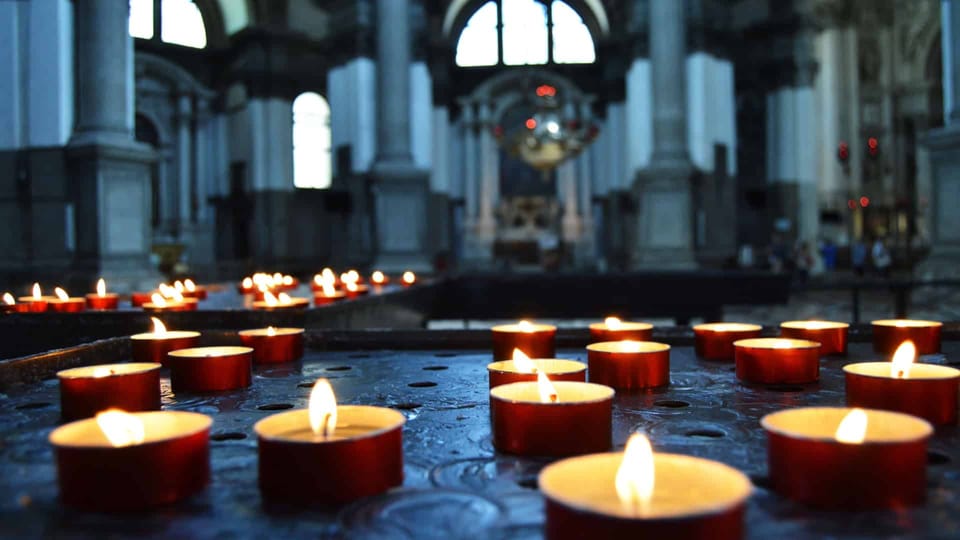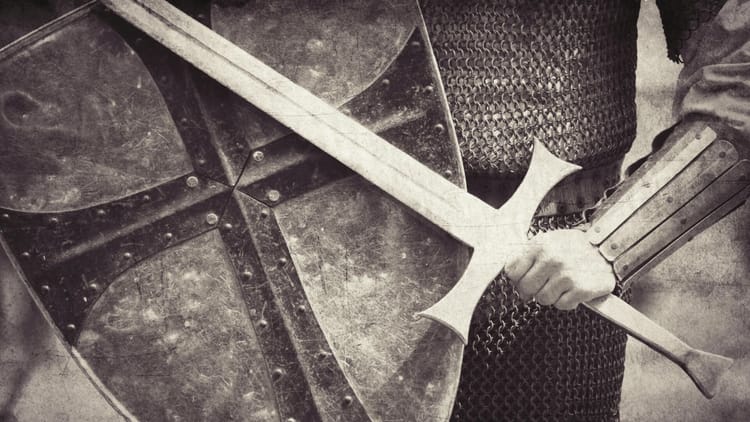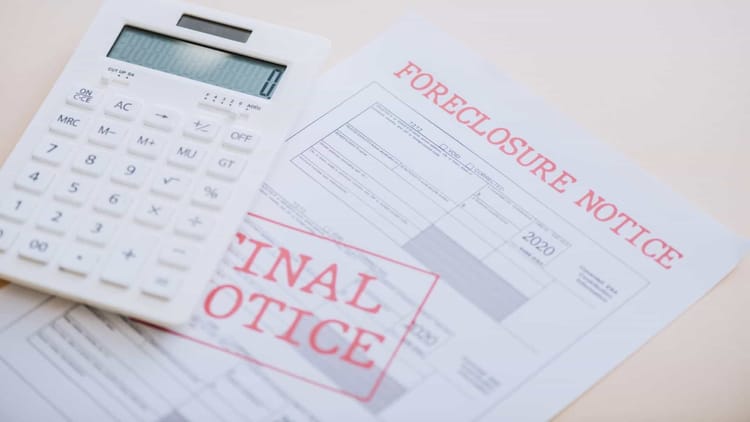The Danger of Religion (Matthew 7:13-8:1)

Big Idea: Don’t settle for fake Christianity. Instead, follow Jesus. Your life depends on it.
When we were kids, our family lived in relative poverty. This meant that we didn’t have enough money for certain things. For instance, we didn’t have enough money to buy school gear. So my mother went and tried to make something that looked like the school clothes. It was a labor of love, but it didn’t quite work. My older brothers wore the clothes to school and were teased because of it.
Sometimes having the real thing matters. Don’t give me pressurized dairy topping; give me real whipped cream. Don’t give me white powder; give me cream in my coffee. Don’t give me table syrup; give me maple syrup. There’s a world of difference between something that tries to look like the real thing and something that is the real thing.
It’s the same with following Jesus. This summer we’ve been looking at Jesus’ teaching on the good life. And today we’ve reached the very end. In this passage Jesus is going to call for a verdict. He’s going to give us a stark choice.
It’s so easy to misunderstand what Jesus is saying, so let’s be clear. Jesus isn’t giving us a choice in this passage between following him and living a sinful life. That’s a different topic for a different day. Jesus isn’t talking about the atheists and agnostics in this passage. He’s talking to us. And he’s saying that there are two ways to live, and both are present right within the church. We need to choose.
Let’s look at what Jesus says in this passage. Jesus says three things, and here’s the first.
There Are Two Ways to Live
This is probably the most important point that Jesus makes in this whole passage. Read verses 13 and 14 with me:
Enter by the narrow gate. For the gate is wide and the way is easy that leads to destruction, and those who enter by it are many. For the gate is narrow and the way is hard that leads to life, and those who find it are few.
This is pretty easy to understand. We would like to be given more choices, but Jesus says there are basically two. This is consistent with the teaching of the whole Bible, by the way. Deuteronomy 30 and Jeremiah 21 present us with a choice between death and life. In Psalm 1, we read about the way of the righteous and the way of sinners. We face a binary choice between a path that leads to destruction and a path that leads to life.
If you’re reading this, you may be thinking that Jesus is talking about the choice we have to make between living a sinful life and following him. But that’s not at all what Jesus is talking about here. If you look carefully at this sermon, Jesus was talking to religious people. Who listened to this sermon? Most likely it was religious people. We’re going to see this as we look at some of the details in this passage. Jesus isn’t warning against atheism or agnosticism or being irreligious in this passage; he’s warning against fake Christianity.
How do we know this? It’s actually what Jesus has been talking about for the whole sermon: the difference between fake external commitment to God and something that’s comes from within. It fits the overall message of the Sermon on the Mount, which is how to really live and flourish in contrast to outward religiosity.
It also fits what Jesus says in this section. He’s talking about two paths. Both look like good paths that lead to somewhere, but although they look the same, their destination is very different. He’s talking about two kinds of prophets, both teaching truths about God, but with very different results. He’s talking about two houses that look the same, but their foundations are different. And then he gives us a warning that keeps me up at night:
Not everyone who says to me, ‘Lord, Lord,’ will enter the kingdom of heaven, but the one who does the will of my Father who is in heaven. On that day many will say to me, ‘Lord, Lord, did we not prophesy in your name, and cast out demons in your name, and do many mighty works in your name?’ And then will I declare to them, ‘I never knew you; depart from me, you workers of lawlessness.’ (Matthew 7:21-23)
Here’s what Jesus is saying. There are two religious paths to God. One seems to be better because it’s broader and easier. The only problem is that it ends in destruction. This is the path of what Dietrich Bonhoeffer called cheap grace:
Cheap grace is the preaching of forgiveness without requiring repentance, baptism without church discipline, Communion without confession, absolution without personal confession. Cheap grace is grace without discipleship, grace without the cross, grace without Jesus Christ, living and incarnate.
It’s fake Christianity. It’s easy and it’s cost-free. And Jesus says it’s nothing like the real thing.
And then there’s the other path. It’s narrow and it’s more difficult. It’s the proverbial road less traveled. And yet it’s the way that leads to life.
Don’t settle for fake Christianity. Instead, follow Jesus. Your life depends on it.
Friends, there are few things more destructive to the soul, more odious than fake Christianity. Jesus is clear about this. Our lives depend on this. One of the greatest dangers we face is spiritual deception; to think that we’re really Christians when we’re not at all. There are few things more deadly than this.
That’s the first lesson of this passage. There are two ways to live: fake Christianity and real Christianity. Here’s the second lesson that Jesus teaches us.
Jesus Gives Us the Difference Between Genuine and Fake Christianity
If you look carefully at this passage, Jesus gives us four pictures in this passage. He’s doing us a huge favor, because we need to learn the difference between genuine and fake Christianity.
- two roads (7:13-14) — one narrow, and one wide
- two types of prophets and two trees (7:15-23) — one sheep and another wolves dressed as sheep; one with good fruit and one with bad
- two houses (7:24-27) — one build on sand and one built on rock
So Jesus gives us plenty of hints so that we can spot the difference between genuine and fake Christianity.
Let’s see if we can spot a few in this passage.
- Fake Christianity is a lot easier (7:13). If your Jesus doesn’t make demands on your life, you don’t have the real thing. If following Jesus is convenient, you’ve got fake Christianity. Real Christianity demands your life. “When Christ calls a man, he bids him come and die” (Dietrich Bonhoeffer).
- Fake Christianity is led by dangerous predators (7:15-23). This is part of the problem. Not only is there this thing called fake Christianity. That’s bad enough. But Jesus says that it’s led by dangerous predators. They look the same. They seem to do the same things. But they’re wolves in disguise. They are out to do damage. They produce bad fruit. Sooner or later the truth comes out because of the fruit they produce. I’ve been around long enough to see this. Fake Christianity is led by a lot of fake Christian leaders.
- Fake Christianity believes but doesn’t obey. Jesus says, “Everyone who hears these words of mine and does not do them will be like a foolish man who built his house on the sand. And the rain fell, and the floods came, and the winds blew and beat against that house, and it fell, and great was the fall of it” (Matthew 7:26-27). This is in contrast to hearing and obeying the words of Jesus.
It’s interesting that Jesus compares the house built on sand with the house built on rock. If you build your life on fake Christianity, you will not have a solid foundation when the hard times come. One of the reasons that I became convinced that Christianity is true is because I saw my mother go through unbelievably hard times. “The rain fell, and the floods came, and the winds blew and beat on that house, but it did not fall, because it had been founded on the rock” (Matthew 7:25). I became convinced of real Christianity as I saw her house stand. Real Christianity gives you the foundation you need for life and eternity.
We can go through all the motions, attend church, and completely miss the point. These two paths run through every church. The stakes couldn’t be higher. Don’t settle for fake Christianity. Instead, follow Jesus. Your life depends on it.
This leads us to one final conclusion.
Choose the Narrow Path
Look, I get why fake Christianity seems attractive. You get something that looks like the real thing, but at a much lower cost. It makes fewer demands on you, and it doesn’t interfere with your lifestyle much. I get it.
But the problem with fake Christianity is that it’s all external. It’s what Jesus has been talking about all throughout this sermon. Fake Christianity does some of the right things on the outside, but it’s hollow inside. You can’t behave yourself into being a Christian.
Jesus has shown us the problems with this approach. It’s easy, but it leads to destruction. It doesn’t produce good fruit. It won’t give you what you need to withstand the storms of life.
That’s the bad news. The good news? You can choose the narrow path. “Enter by the narrow gate” (7:13).
How do we choose the narrow path?
I think the best way to answer this is to take a step back and look at the entire sermon that Jesus has just preached.
In this sermon, Jesus invites us to a completely new way of living. He began by talking about people who are blessed. They have nothing going for them in this world, but they are truly happy because they’ve discovered a Kingdom that’s theirs that can’t be taken away.
Jesus then tells us more about these people. These people have one unusual characteristic: their insides and their outsides match. They aren’t just outwardly pure; they’re pure inside as well. This allows them to do things like forgive their enemies, handle their anger, and to stay sexually pure in a world of temptation. When it comes to church, their insides match their outsides too. They don’t just pray in church; they pray in private. They don’t care about impressing anyone except for God because they know that he’s the one who truly matters.
Jesus goes on and talks about the way they handle money. It’s natural to worry about money. I think all of us do at times. But these people are growing into the reality that if they pursue God’s kingdom, that everything else they need will be given to them.
And then they relate to the world in a certain way. They aren’t judgmental, nor are they undiscriminating. They pray for the people in their lives believing that God is wiling to hear their prayers.
If I were to summarize the type of disciple that Jesus describes in this sermon, I’d describe it in two ways:
- They have discovered that Jesus and his kingdom matters most; and
- Their insides and outsides match.
That’s it. Contrast this to the other way we can live. We can live by investing in stuff that’s good but that will ultimately be taken away from us. We can work on becoming outwardly moral and religious without really changing inside. We can spend our lives accumulating money. And we can live in judgment of others while being blind to our own faults. Worst of all, we can die thinking that we’ve succeeded, only to find out that God doesn’t even know us.
Friends, don’t settle for fake Christianity. Instead, follow Jesus. Your life depends on it. Cast yourself on Jesus today and ask him to not only deal with your sins, but to change your heart so that the inside matches the outside. Pursue his kingdom more than anything else. Live in community with other Christians. Pray and pursue God. It will be hard. It will be costly. But in the end you will find that you have chosen the narrow path that leads to life, and those who find it are few.
So Lord, teach us to flourish. Help us never to settle for fake Christianity. Help us instead of follow Jesus with all of our lives. May he be our greatest treasure and our only joy. May we never settle for anything less. In Jesus’ name, Amen.





